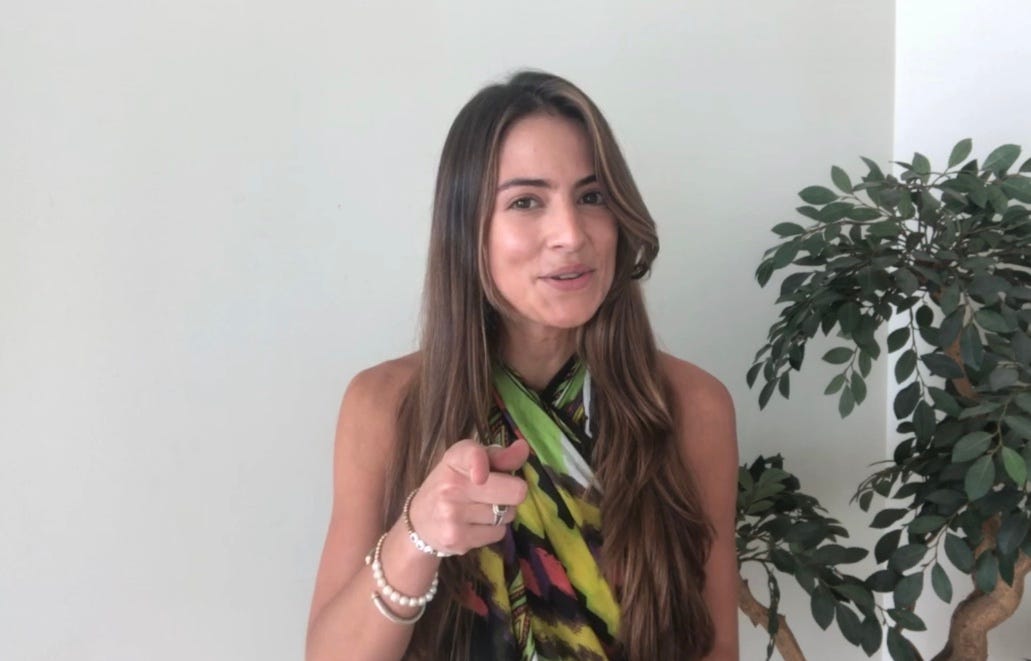Fab Fridays 16: Creativity and a Generation of Producers
What does it really mean to be creative?
Hi all!
Happy Friday and greetings from Panama.
Now that I’m getting into the YouTube groove, I’ll be sharing three different videos in today’s edition that I recorded this week. Let me know how I’m doing!
You can subscribe to my YouTube channel here :)
Creativity: Changing the Narrative
What does it really mean to be creative? In this video, David Perell and I explore some common myths about creativity and the importance of changing the narrative around this fuzzy topic to unleash a generation of creators.
As a kid, when I would hear the word “creative,” I would often envision artists and graphic designers. Growing up, I was under the impression that in order to be creative, I needed to be artsy or crafty.
I also wrongly believed that in order to be creative, I needed to come up with a brand new product or an idea never seen before.
When I became a teacher, I realized how much of this can be attributed to the narrative around creativity in schools.
In school, creativity is usually associated with what’s inside the box labeled “The Arts” in the corner of the classroom. That’s one place where creativity belongs. But it’s certainly not the only place.
We also lead kids to believe that in order to be creative, they need to come up with brand new ideas. That’s one way to be creative. But again, not the only way.
Kids can be creative in the way they approach a problem, the way they communicate things, the way they connect and assimilate ideas, the way they use humor, the way they engage in free play, and in the spontaneous adventures they come up with. It doesn’t have to involve artistic expression.
Similarly, when kids come up with ideas that are new and useful to them, they are being creative. It doesn’t matter if someone else came up with a similar idea in the past. It’s ok to make something based on what’s already out there. We can remix creatively.
Creativity is a mindset that gives us a sense of inventiveness and excitement.
Kids who believe they are not the “creative type” fear and avoid the creative process. Let’s change the narrative around creativity to unleash a generation of producers.
We need Producers, not Consumers
I’ve been thinking about the need to help kids become PRODUCERS, not just consumers of information.
In this short video, I talk about how we no longer need compliant workers or rule followers.
We need makers of things. Inventors. Creators.
I ’ve been digging into this topic for a while now, convinced that kids need to do more with what they are learning. I’m creating an email series for parents to help their kids become producers at home. Stay tuned!
¿Y si Repensamos la Educación?
Yesterday I led a webinar in Spanish in “Comparte Tu Guilla” about the problems with our current education system. I shared my views and suggested ways in which we can rethink the way we educate younger generations.
You can watch the entire presentation in Spanish here.
Where can you catch Ms. Fab?
Check out my Linktr!
Until next week!
Ana Lorena Fabrega







Yes, creativity in public schools has been limited to the arts. There are numerous ways of being creative outside of the arts. Although, one thing that goes unnoticed is that the creativity expressed and used in the arts spills over into other areas like math, science, engineering, etc.
The arts are important in creating a well rounded curriculum. It's not about being an artist as a career, it's about taking a break from thinking one way, and switching gears to think in an entirely different way.
I've read stories of professionals who work in math or science and they've had breakthroughs in their research while they were painting or playing music.
Math, for example, can be applied to the arts. It's a beautiful symphony of creativity.